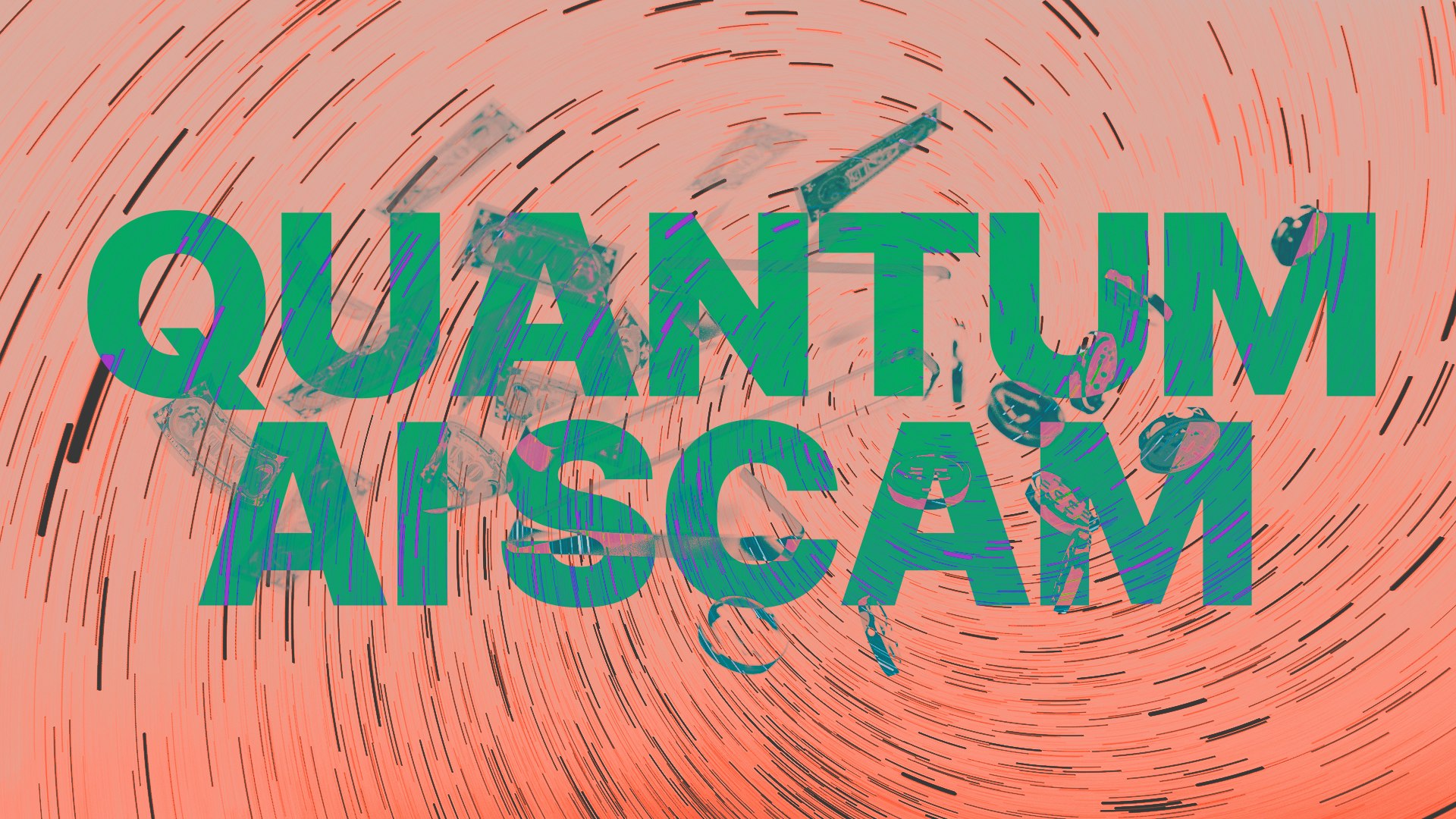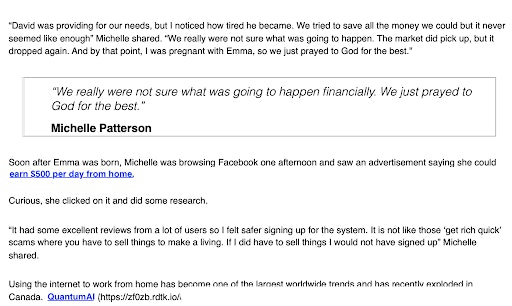Don’t invest unless you’re prepared to lose all the money you invest. This is a high‑risk investment and you should not expect to be protected if something goes wrong.
Unmasking the Quantum AI Scam – Here are the Tactics
The Quantum AI scam is on the rise. Here's what to look out for.
In this article...
- What is the Quantum AI scam and how does it work?
- How can you protect yourself from falling victim?
- Learn to identify the tactics used by these scammers.

What is a Quantum AI scam? In the age of online shopping and digital convenience, it's essential to remain vigilant against scams, particularly those designed to lure unsuspecting consumers with eye-catching ads and promises of quick .
A recent scam involving a product ad on Facebook and a subsequent fake news page leads victims to a fraudulent trading platform, . Let’s dissect each step of the scam, exposing the red flags that signal danger.
The Facebook ad: A misleading start
The journey begins with a seemingly innocent Facebook ad for a handheld vacuum cleaner, showing a generic image of a device cleaning up confetti. While the ad appears harmless, the product itself doesn’t link to a reputable e-commerce site like Amazon or eBay. Instead, it directs users to a suspicious and unknown domain.

Red flags
No recognisable brand: The ad lacks any known brand or company association.
Suspicious URL: Clicking the link doesn’t lead to a trusted site but to a domain that raises immediate questions.
Generic promotion: The language used, such as "state-of-the-art vacuum cleaner," is vague, offering no clear product details or specifications.
Stock imagery in use: We can see the Adobe Stock watermark across the video, indicating the video has been taken without authorisation.
The Fake News Page: “Stories” that trick you into trusting
After clicking the ad, users are redirected to a dubious “news” site that features a story about a woman named Michelle who supposedly made thousands using a crypto trading platform called Quantum AI.

The page mimics the layout of a legitimate news site but is filled with hyperbolic claims, personal stories, and suspicious links that all lead back to Quantum AI.

The page mimics the layout of a legitimate news site but is filled with hyperbolic claims, personal stories, and suspicious links that all lead back to Quantum AI.
It uses fabricated interviews and success stories to prey on the reader’s emotions and curiosity.
Red flags
Fake success stories: The featured story about Michelle hiding $7,239 per month from her husband is clearly fabricated, designed to build an emotional connection and encourage readers to follow suit.
Over-the-top earnings claims: Phrases like "make $500 per day" or "checks totaling $1,320.42" scream scam, especially when tied to promises of effortless riches.
Suspicious disclaimers: At the bottom of the page, disclaimers mention that the page’s content is not to be taken literally, which is a clear indication that the entire article is falsified.
3. The Quantum AI scam: The final trap
The final destination of this scam is the Quantum AI website, which promises users the ability to earn money automatically using artificial intelligence and quantum computing to trade cryptocurrencies.

The site pushes visitors to input their personal information, such as their name, email, and phone number, under the guise of starting a quick, profitable venture. It plays heavily on urgency with phrases like “spots are filling up fast!” and “start earning today!” to press readers into hasty decisions.
Red flags
No clear company information: There is no verifiable contact information, no legal disclaimers, and no trace of legitimacy. No credible company operates without these key components.
False claims about AI and quantum computing: While AI and quantum computing are real technologies, there’s no evidence that this platform utilises either. These buzzwords are used to create a sense of credibility where none exists.
Pressure tactics: Scammers often rely on tactics like “limited spots” to create urgency, preventing victims from thinking critically before entering personal data.
Concerning advertising: If you got to this company from a fake vacuum cleaner ad, they are not legitimate.
##Conclusion: Recognising and avoiding scams
This particular highlights several tactics that scammers use to deceive and defraud unsuspecting users:
Vague product descriptions and unknown links.
Fabricated personal stories that tug at emotional heartstrings.
Too-good-to-be-true promises of easy and fast money.
Urgency and pressure tactics to force quick decisions.
Always be wary of unknown brands or sites, especially when they link to suspicious domains. Do your research, trust your instincts, and don’t let the allure of quick cash cloud your judgement. If something feels off, it probably is.


Suggested Articles
What is Bitcoin (BTC)? What is "Digital Gold" Used For?
What is Bitcoin? It is a digital currency that can be traded, exchanged, and used as a form of payment independent of central banks and governments.What is Ethereum? What is ETH Used For?
Ethereum is a decentralised blockchain-based open-source software platform that allows for the development of decentralised applications (dApps).What Is Crypto? How do Cryptocurrencies Work?
Crypto has become incredibly popular. But how does this digital currency work? And are there cryptos other than Bitcoin?Browse by topic



Cryptoassets traded on CoinJar UK Limited are largely unregulated in the UK, and you are unable to access the Financial Service Compensation Scheme or the Financial Ombudsman Service.
We use third party banking, safekeeping and payment providers, and the failure of any of these providers could also lead to a loss of your assets. We recommend you obtain financial advice before making a decision to use your credit card to purchase cryptoassets or to invest in cryptoassets. Capital Gains Tax may be payable on profits.
CoinJar’s digital currency exchange services are operated in the UK by CoinJar UK Limited (company number 8905988), registered by the Financial Conduct Authority as a Cryptoasset Exchange Provider and Custodian Wallet Provider in the United Kingdom under the Money Laundering, Terrorist Financing and Transfer of Funds (Information on the Payer) Regulations 2017, as amended (Firm Reference No. 928767).
Apple Pay and Apple Watch are trademarks of Apple Inc. Google Pay is a trademark of Google LLC.
This site is protected by reCAPTCHA and the and apply.